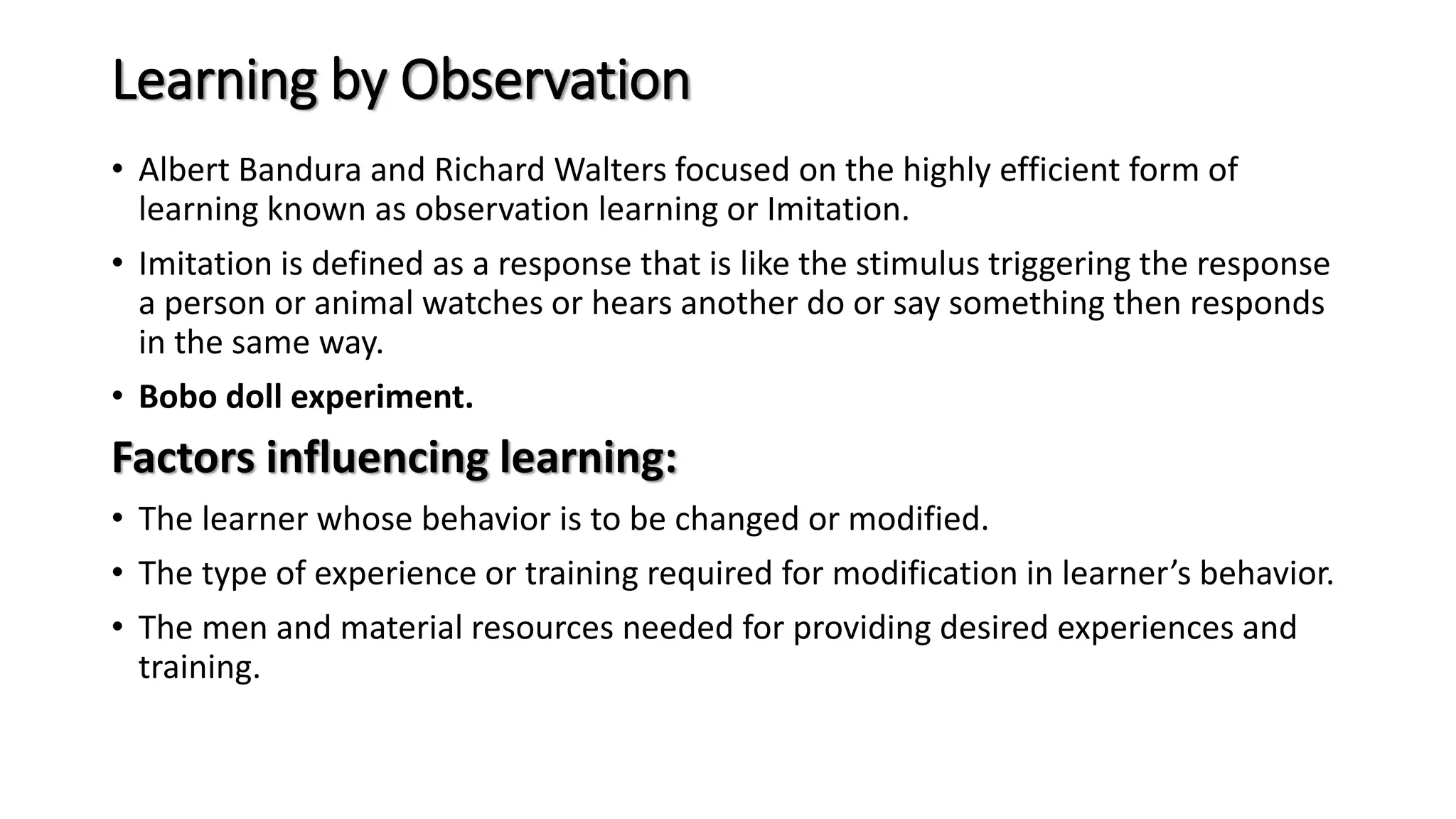This document discusses different types and theories of learning. It defines learning as a relatively permanent change in behavior resulting from experience. There are three main types of learning: simple non-associative learning, associative learning, and observational learning. Important learning theories discussed include trial and error learning, classical conditioning, operant conditioning, and cognitive learning. The document also outlines different characteristics, domains, and factors that influence the learning process.
















